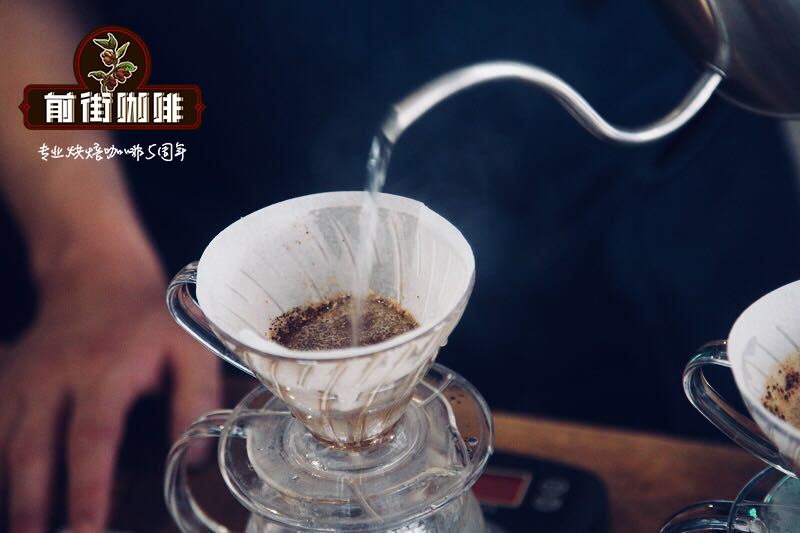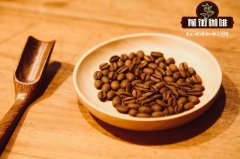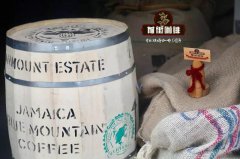How to make Arabica coffee?

Professional coffee knowledge exchange more coffee bean information please follow the coffee workshop (Wechat official account cafe_style)
Coffee beans must be used in sufficient portions. Too little coffee powder may lead to insipidity, but not too much at a time. The standard amount of coffee is: use two flat spoons (about 15 grams) of coffee beans (powder) to make a cup of coffee (about 180cc). Generally speaking, the most suitable water temperature for brewing coffee is between 88 and 94 degrees Celsius, avoid using boiling hot water to make coffee. Let the water boil for 1-2 minutes and then use it to make coffee.
Bourbon is almost all round beans, beans are a little smaller than tin card, ripening later, but the yield is 30% more than tin card. It is suitable for growing above 1200 meters above sea level, and its flavor is obviously more prominent than those below 1000 meters, but bourbon has a disadvantage that it will rest for a year as a result. Round bourbon is full of vitality, and its resistance to rust leaf disease is better than that of iron pickup, but its flavor is as good as it, or even better.
In 1810, some of the round beans in Bourbon Island mutated into pointed beans, which is known as the "pointed bourbon". It is characterized by a caffeine content of only half, low output, weak physique, and extremely rare, just like a weak aristocratic teenager.
Good Arabica? Coffee requires a complicated process of hand picking, selection and fine processing, so are the most expensive and best coffee beans in the world? Arabica? Grow coffee. Robusta? Caffeine is low-cost and is usually used to produce instant coffee and canned coffee. A few of the better ones? Robusta? Grown coffee is also used in blending (mixed with Arabica coffee) espresso beans.
There is an important difference in other differences: the amount of caffeine. Robusta? The caffeine content of coffee is about? Arabica? Twice as much coffee, which is why drinking some canned coffee is prone to palpitations and insomnia.
Have you seen so much? Arabica coffee? With? Robusta coffee? Finally, it must be emphasized that:
Arabica coffee? It's not the same? Good coffee? Robusta? It's not absolutely cheap coffee!
Related recommendation: how about Arabica coffee? characteristics and taste of Arabica coffee
Important Notice :
前街咖啡 FrontStreet Coffee has moved to new addredd:
FrontStreet Coffee Address: 315,Donghua East Road,GuangZhou
Tel:020 38364473
- Prev

What does "Arabica" mean in daily life? introduction to the characteristics of Arabica Coffee
Professional coffee knowledge exchange more information about coffee beans Please follow the coffee workshop (Wechat official account cafe_style) Arabica coffee beans are synonymous with Arabica. Arabica enterprise claim open classification: coffee plant biology natural Rubiaceae Arabica, (scientific name Coffea arabica, English Coffee Arabica), can also be called Arabica coffee, is Yesso
- Next

When was Arabica Coffee introduced into China the Origin History of Arabica Coffee
Professional coffee knowledge exchange more coffee bean information Please follow the coffee workshop (Wechat official account cafe_style) Arabica is deeply loved by the Chinese with a short history of coffee contact because of its strong fruity aroma. it was introduced to China by missionaries in the 19th century and is widely planted in the dry-hot valley of the Jinsha River above sea level 1000 meters above sea level in Panzhihua, Sichuan and western Yunnan.
Related
- Beginners will see the "Coffee pull flower" guide!
- What is the difference between ice blog purified milk and ordinary milk coffee?
- Why is the Philippines the largest producer of crops in Liberia?
- For coffee extraction, should the fine powder be retained?
- How does extracted espresso fill pressed powder? How much strength does it take to press the powder?
- How to make jasmine cold extract coffee? Is the jasmine + latte good?
- Will this little toy really make the coffee taste better? How does Lily Drip affect coffee extraction?
- Will the action of slapping the filter cup also affect coffee extraction?
- What's the difference between powder-to-water ratio and powder-to-liquid ratio?
- What is the Ethiopian local species? What does it have to do with Heirloom native species?

